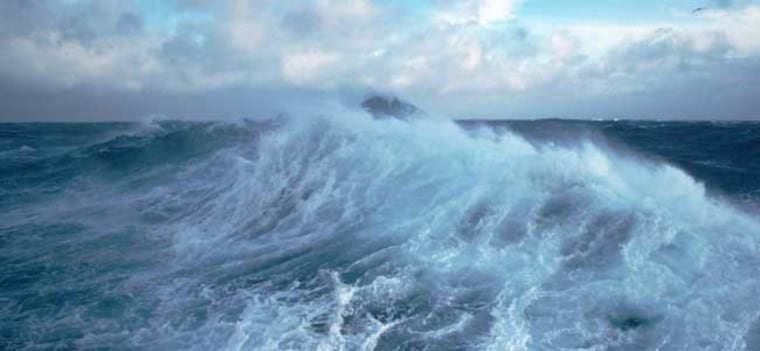
Parts of the global oceans may get smellier thanks to global warming, according to a recent study.
The culprit is increased production of a sulfur-containing compound by marine plankton called dimethyl sulfide, or DMS. The sea-air smell is described variably as like cabbage or fishy and tangy.
Its link to marine plankton has been known for a while, and in 2007 scientists identified the genes responsible for its production.
Climate scientists are interested in the smelly gas for more reasons than just tickling their inner child: it is a major precursor for aerosols that trigger cloud formation and reflect sunlight back to space.
The new study finds that "DMS is locally much more sensitive to climate change than in previous modeling studies," Philip Cameron-Smith, a researcher at the Lawrence Livermore National Laboratory in California, said in a news release.
"The shift in emissions will change the heating patterns."
To find out how the marine plankton and production of the gas will respond as concentrations of the greenhouse gas carbon dioxide rise, scientists plugged present day values (355 parts per million) and a future value (970 parts per million) into a global ocean biogeochemical model.
In the future scenario, the team found that DMS emission to the atmosphere was 150 percent higher than current levels in the Southern Ocean. The plankton there benefit from melting sea ice and other ecosystem changes, which will open up cold water where they thrive.
The increased production of the plankton in the Southern Ocean, in particular a species called Phaeocystis, will compensate for a decline in production in warming waters that stunt growth, Cameron-Smith said.
Going forward, the researchers said that they may need to factor in how ocean acidification from increased levels of carbon dioxide in the oceans will affect the plankton community, and thus DMS production.
For a preview on this issue, check out the video below:
More on climate change and the oceans:
- Scientists figure out origins of sea smell
- Plankton, base of ocean food chain, in big decline
- Warming alters Antarctic food web, study finds
- Arctic ice melt sparks plankton blooms
- Scientists unravel recipe for ocean's biological blooms
Findings are published in the journal Geophysical Research Letters. In addition to Cameron-Smith, co-authors include Scott Elliot and Matthew Maltrud of the Los Alamos National Laboratory; David Erickson of the Oak Ridge National Laboratory; and Oliver Wingenter of the New Mexico Institute of Mining and Technology.
John Roach is a contributing writer for msnbc.com. Connect with the Cosmic Log community by hitting the "like" button on the Cosmic Log Facebook page or following msnbc.com's science editor, Alan Boyle, on Twitter (@b0yle).